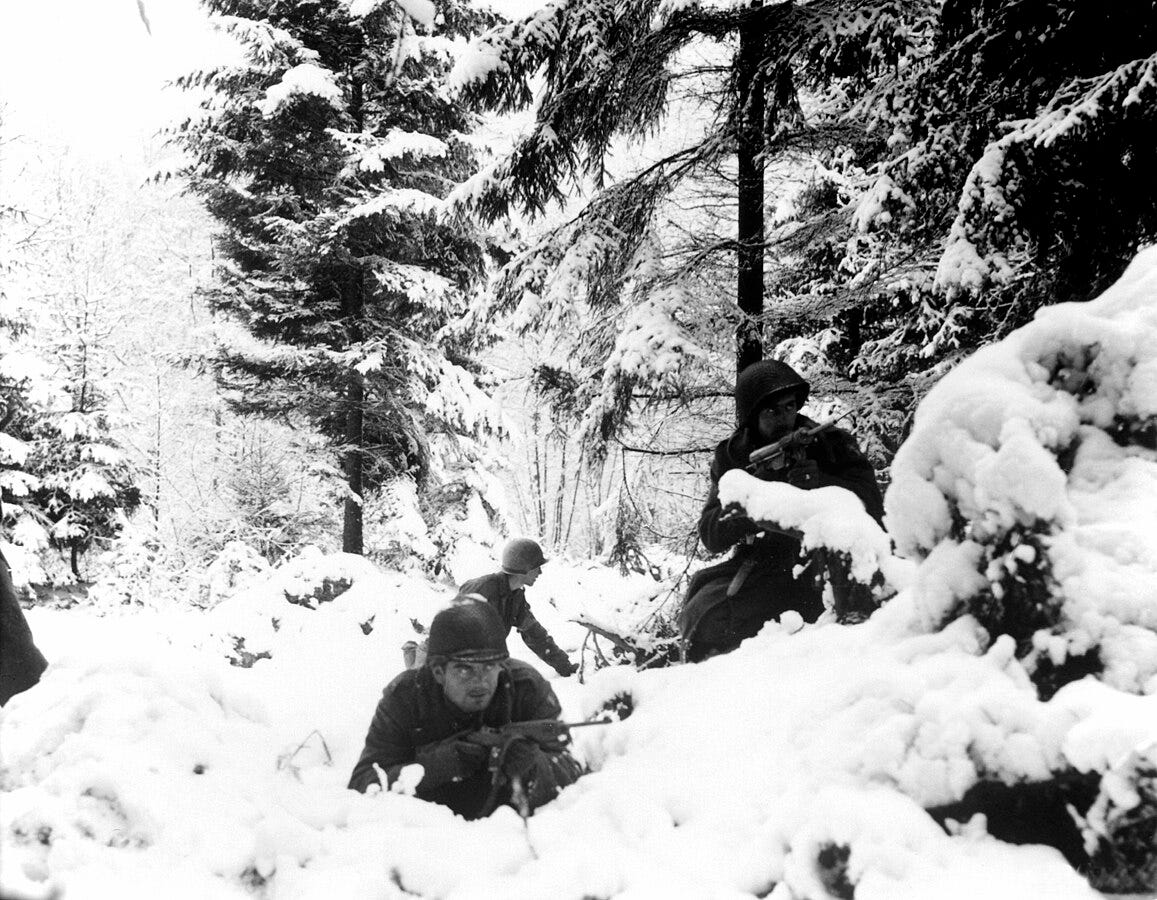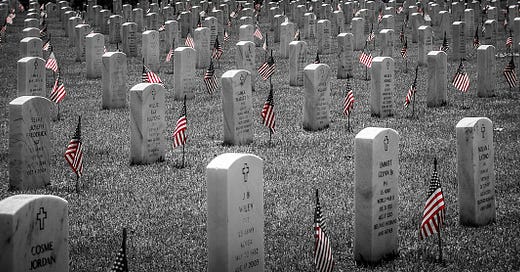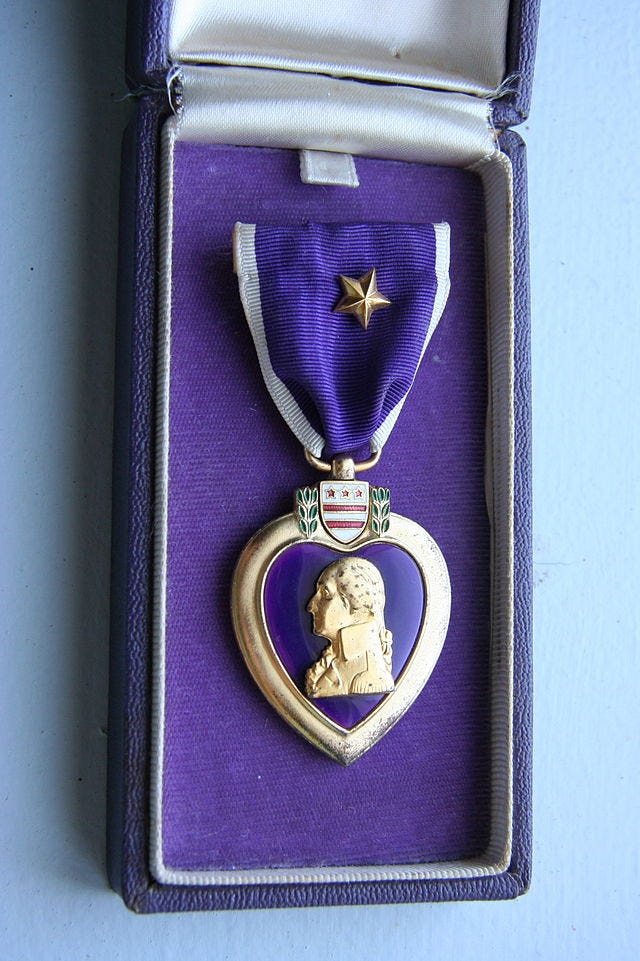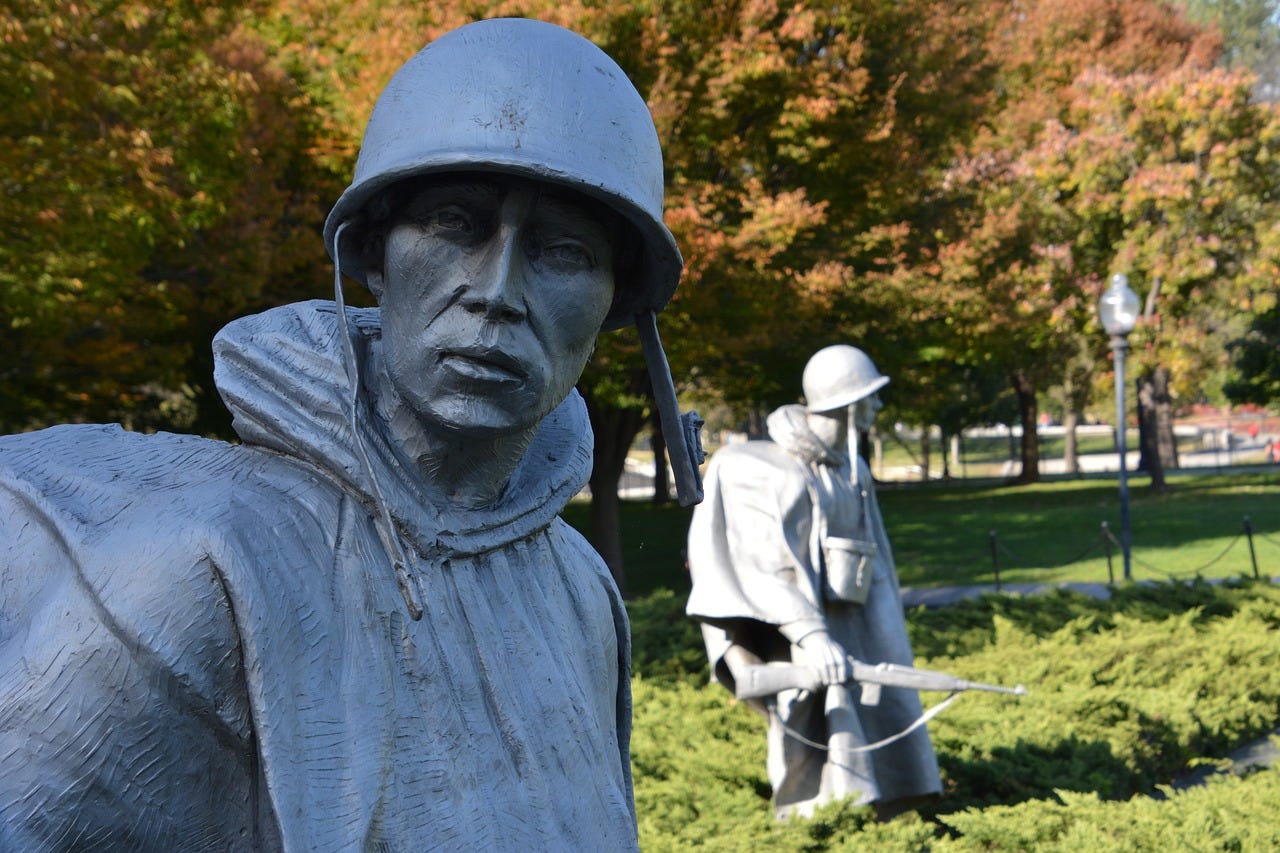Every family has its secrets. Mine had a doozy, and it was buried in plain sight.
Military service and other government work goes back a long way in my family—every generation stretching back to 16th century Europe has had at least one very socially ambitious or patriotic soul that managed to get themselves involved in a war, or an election, or some kind of government job of varying degrees of prestige. It’s a strange feature for a collection of family lines that are fairly apolitical by temperament, but then again before the Boomer revolution of the 1960s such things weren’t primarily thought of as “political” so much as they were part of one’s duty to one’s community/country/etc.
One of the more interesting things about living in such a family is that you there are things you don’t talk about—classified knowledge isn’t unusual, and everyone respects the oath (even if it was given by a family member you’d really like to see get into some hot water). Ask the wrong question, and you get either a subject change or “I can’t talk about it.”
I was just starting to seriously get into history as a hobby when I was twelve. Communism was in the process of falling apart, and “the end of history” was on everyone’s lips. At family reunions I had ready access to old people who’d served in Vietnam, World War 2, and Korea, or who’d gone wildcat during recent world-historical events, so I figured that it didn’t hurt to ask questions—if they couldn’t tell me, they’d say so.

When The Past Isn’t The Past
Sitting at the dinner table at one such family reunion, I looked my taciturn Great Uncle in the eye and said:
“I heard you were at the Battle of the Bulge. What was it like?”
For those of you who don’t know, the Battle of the Bulge was the turning point in World War 2’s Western front in Europe, the last major German advance against Allied forces before they fell into more-or-less perpetual retreat. From December 1944 to January of 1945, the Germans launched a successful surprise attack against the Allied lines in France and Belgium and managed to beat the Allied forces back around 45-50 miles through the Ardennes forest, creating a westward-reaching “Bulge” that put them in position to strike for the coast, or to go south into France and regain some valuable lost ground.
The Allied generals were basically caught with their pants down. Having spent all their resources planning their next offensive, they didn’t consider that maybe the Wemacht might actually want to fight back. The result was one of the bloodiest, most horrific battle clusters of the war—75,000 Allies lost their lives over the course of a few weeks, as did 120,000 Germans.
Of course, I didn’t know any of this at the time. I just knew that I was sitting in the presence of a dude who’d won a medal for being in a Very Important Battle where the Bad Guys got a bloody nose.
So, anyway, I asked my Uncle:
“I heard you were at the Battle of the Bulge. What was it like?”
His wife, standing behind him at the time, went pale and fumbled her drink.
His children and grandchildren, some of whom were also at the table, gasped.
This was apparently One Of Those ThingsTM.
My mother laid her hand on my shoulder and opened her mouth to apologize...
...when my Uncle cut her off with a “Funny you should ask about that. I was just thinking about it the other day.”
He picked up his napkin and dabbed away the whipped cream from the Belgian waffles he was eating, then set it down and looked off into the distance.
“I heard you got a medal,” I said. “Can I see?”
He shook his head. “It’s packed away.”
“Why?” I asked.
He took a deep breath, his leathery face still staring off into the infinite, and started to talk.
It was a long fight. And a cold one. The generals didn’t know what the hell they were doing when it started, they just threw the soldiers at the German tank advance. The first few days weren’t so bad, they were just tough. Then, when his unit was fighting against the German footsoldiers, the weather moved in. He and his best friend were mowed down by machine gun fire, and then the battle lines moved. The Germans pushed right past him.
He thought he was going to die. He ate the last of his rations, moving as little as he could, and waited for another American soldier around him to make a move, or a sound, but nobody did. He didn’t know if the Germans could see him. Night came, and the snow came. He curled up next to his buddy’s dead body for warmth, and tried to go to sleep.
The snow fell. So much snow, he knew no one would never find him. He lost consciousness. Figured he was dead.
The next thing he knew, someone stepped on him, right on one of his bullet wounds. He screamed. He heard shouts in English.
The Army had advanced again to his position, and a platoon had literally tripped over him. They pulled him out and got him into an ambulance wagon, then they started searching the field for other wounded. In the hundreds of bodies, they only pulled out a handful.
At that point, he choked up—only a little bit, I don’t know if anyone else noticed. I was utterly enraptured in the story—and said:
“That’s what they gave me the medal for—the purple heart for being wounded, and the other one for saving people’s lives. I didn’t save anyone’s life. The guy who tripped over me did. So I don’t look at it.”
Then he picked up his coffee and took a sip, and said “So what do you guys want to do this afternoon?”
I never did get to see his medal.
What I did get was more memorable than that.
Later that day his wife pulled me aside and said:
“Back before we got married, he made me promise never to ask him about the war. I never knew what happened. None of us did.”
Then she thanked me.
The History at Your Fingertips
My uncle is not alone. We are surrounded by those who lived through the history that we only hear about—but we rarely ask them about it. But if you want to know the flavor of the moments that make it into the history books, there is no better source.
And these people are dying quickly. World War I is now gone from living memory. World War II and The Great Depression are fast dying away. Vietnam and Korea will soon follow, as will all the tumult of the 20th century.
After that, I made it my policy when around veterans to always ask the questions you’re not supposed to ask. And I got stories—dozens of stories. Some of them have made it into my novels. Some into my nonfiction. Some of them I won’t pass on, because I was asked not to.
I guarantee, you also are surrounded by people who have experienced things you can’t imagine. Some of them got so good at not talking about them that, once they’re ready to talk, they find that they can’t bring themselves to start a conversation...but they’re secretly hoping somebody asks.
I sling a lot of arrows in this column at the US Government, its war machine, and its dreadful mismanagement of its empire in the latter decades. But I have learned over many long years that many of the men on the front lines, whether they volunteered or were forced there by law, do what they do out of the most basic kind of heroism there is. They put their lives on the line to save their buddies in the heat of battle. They do their best to defend the people their country has deemed “friends,” because that’s what you do for friends.
Memorial Day is a day of remembrance. In most countries, Remembrance Days are for contemplating the sacrifice of soldiers who died defending their homeland. In the United States, where we haven’t had a war on our home soil in over a hundred years, we remember the people who sacrificed their lives in service of those we’ve called “Friends” and “Allies.” It’s a much harder thing for soldiers to fight for someone with whom they do not identify than it is to defend one’s family, and yet our soldiers do it anyway. Whether the war they fight in is, in retrospect, just or unjust, well run or not, the people that fight them engage in the most noble feat any human can:
Heroism.
So, this Memorial Day, talk to the veterans in your family. Don’t just thank them for their service—everyone does that. It doesn’t mean a lot. Instead, ask them for their stories. Even if they don’t want to talk, the fact that someone cares enough to ask will mean the world to them.
And, if you are so inclined, raise a glass with me to the hope—and certainty—of another era of peace after the current troubles run their course.






